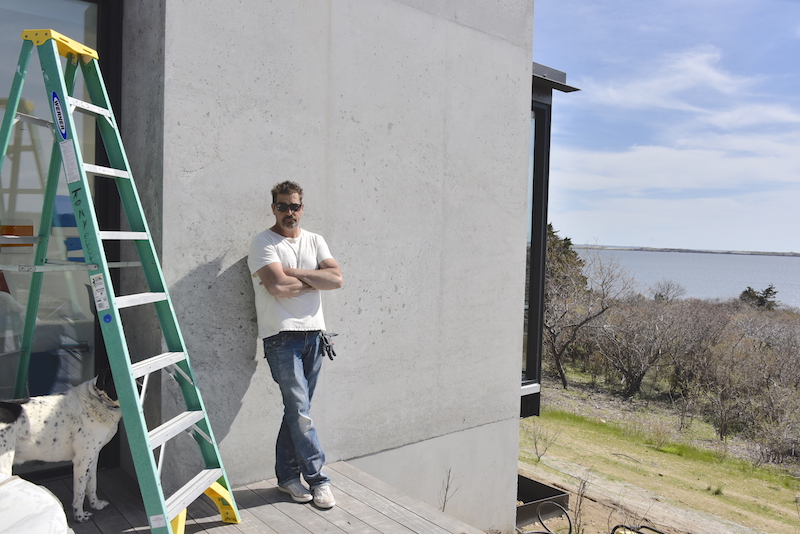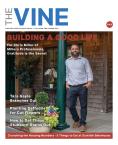You think you know Bill Howell not long after meeting him. He talks openly of growing up on the Cape, his 13 years in and out of rehab because of addiction, his recovery — thanks to Martha’s Vineyard and Vineyard House — and his hiring of others in recovery to work in his now highly successful concrete business, Concrete Bill.
But it’s like pulling teeth to get him to say that he also trained as a classical trumpeter from a very young age, won a music scholarship to Tabor Academy, played in the Cape Cod Symphony in his teens, graduated from Columbia University with a degree in psycho-linguistics; and during his years battling addiction, played with some of the greatest jazz musicians in New York City and worked for a while trading commodities on Wall Street. Who is this guy and how did he do all of that? Not easily, he says.
“Addiction runs in my family, on both sides,” he says. “After I graduated Columbia in 1985, it really took hold of me. I kind of went down hill for a really long time.”
Q. So what substance or substances did you start out with?
A . I don’t know. Probably pot, but really for me it was whatever was cheapest and most available.
Q. Still, you held important jobs, at least at first. How did concrete work begin?
A. At my bottom (back on the Cape around 1990), there weren’t a lot of jobs I could keep. I was in and out of detox. I wasn’t reliable, I wasn’t productive, so I would get extremely physical, crappy jobs, and that turned out to be concrete foundation work. So I did that for a long period of time. I didn’t like it. But then I was no fan of work anyway. But then I got into Vineyard House (the Island’s only sober living facility), got into recovery, and my whole life transformed.
Q. Wait! Back up! How did you even hear of Vineyard House?
A. A guy that I was working for in ’97 or ’98…his mom was affiliated with Vineyard House, and at that time, it was new and talked up a lot more. I started getting better in the late 90’s and was actually living and working on the Island. I moved into Vineyard House in the summer of 1999.
Q. And you continued working in concrete?
A. Turns out that since I had been doing concrete work so long by then that I was really good at it. It slowly dawned on me that this was something I liked, actually. A year into recovery, I started my own business. It was tough, I didn’t have any money, but I had guys with me, guys who were kind of on the same path, and they were helpful.
Q. Yes, I understand you’ve built your business hiring others in recovery. Has that proved a good strategy?
A. I don’t think about it as a strategy. These are the people that I’m around all the time. They’re people I think deserve a break. And, typically, they’re available. I think it has worked out fantastically.
And I still, to this day, do a ton of service in the recovery community. In recovery, you go from a self-centered style of living to becoming more outwardly focused and wanting to help. I’m now on the board of Vineyard House where I used to be a resident.
Q. What satisfies you, professionally, as Concrete Bill?
A. It depends on the nature of the job. When I am doing a modular for a local person in the community, that is just hugely rewarding. I love being able to deliver something to them that is affordable and of quality.
On the other hand, I also get to work on the high end with some world-famous architects. It’s super demanding. We are doing things and encountering engineering specifics that not just anybody can do. I love learning new stuff.
Q. And personally, what satisfies you most?
A. Just living today. Knowing that I am a productive part of society and that I’m involved in my community in a whole number of ways. That’s important to me.
People who’ve been to the bottom have a deeper appreciation, I guess, for just everyday living.
Q. How would you describe the person you are today?
A. I’m the person today who I’ve always wanted to be. I know who I am, I know what I value, what’s important to me. A lot of people can’t say what that is. I know exactly the answer to these things. Today, my life is full of meaning and purpose.
Paula Lyons is a former ABC and CBS television consumer journalist.




 3 comments
3 comments







Comments (3)
Comments